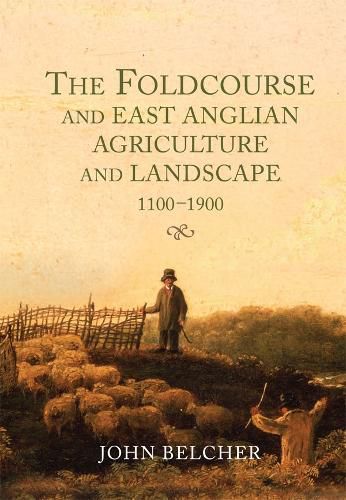Readings Newsletter
Become a Readings Member to make your shopping experience even easier.
Sign in or sign up for free!
You’re not far away from qualifying for FREE standard shipping within Australia
You’ve qualified for FREE standard shipping within Australia
The cart is loading…






A landmark volume… essential reading for all those interested in social, agricultural and landscape history, as well as in East Anglia’s past. Professor Tom Williamson, University of East Anglia.
England in the medieval and early modern periods was farmed under a wide range of agrarian regimes, each of which was both engendered by, and had in turn a determining influence upon, innumerable aspects of society and landscape. Reconstructing the complex history of these systems - how they actually worked on the ground, how and why they first developed and how they evolved over time - is thus crucial for our understanding of the lived experience of past generations and the physical environments which they inhabited. But studies of past agricultural regimes which are detailed enough to highlight their full social, economic and environmental character and implications, are surprisingly thin on the ground. This innovative book dissects the character of one key example - the foldcourse system of East Anglia - from its genesis in the early Middle Ages to its demise in the nineteenth century. It casts a mass of new light on an institution that structured rural life in one region of England, over many centuries. But it also provides important new insights into the nature of early farming systems more generally, and the intricate balance of human agency, and environmental structures, that shaped and sustained them.
$9.00 standard shipping within Australia
FREE standard shipping within Australia for orders over $100.00
Express & International shipping calculated at checkout
A landmark volume… essential reading for all those interested in social, agricultural and landscape history, as well as in East Anglia’s past. Professor Tom Williamson, University of East Anglia.
England in the medieval and early modern periods was farmed under a wide range of agrarian regimes, each of which was both engendered by, and had in turn a determining influence upon, innumerable aspects of society and landscape. Reconstructing the complex history of these systems - how they actually worked on the ground, how and why they first developed and how they evolved over time - is thus crucial for our understanding of the lived experience of past generations and the physical environments which they inhabited. But studies of past agricultural regimes which are detailed enough to highlight their full social, economic and environmental character and implications, are surprisingly thin on the ground. This innovative book dissects the character of one key example - the foldcourse system of East Anglia - from its genesis in the early Middle Ages to its demise in the nineteenth century. It casts a mass of new light on an institution that structured rural life in one region of England, over many centuries. But it also provides important new insights into the nature of early farming systems more generally, and the intricate balance of human agency, and environmental structures, that shaped and sustained them.